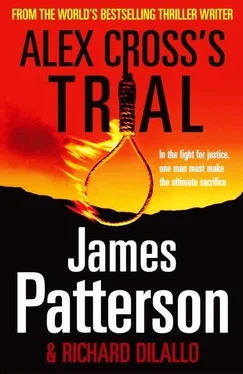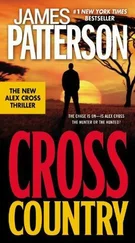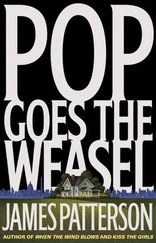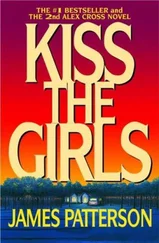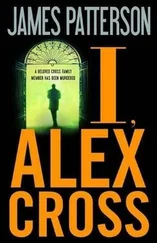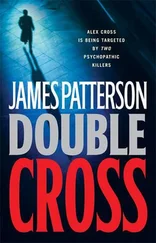A dramatic pause. Then he whipped around.
“And you are being asked to take their word as truth.
“Why on God’s green earth would anyone suppose that you would take the word of this bunch of worthless rabble-rousers over the word of three gentlemen from Eudora?”
I shot a glance at my father, who was watching Lewis with the same contemptuous expression he’d been aiming at me since the trial began.
I wanted to shout, “The people who wash your clothes and pick your crops can tell the truth. The truth is not based on how much money you have. It’s based on… the truth.”
Of course, I did not interrupt the summation.
“Gentlemen,” Maxwell Lewis continued. “Be aware. There are forces at work here that would like nothing better than to take away your freedoms, your right to live life the way you have always lived it here. I warn you to do what you must to make sure that does not happen. Gentlemen, be alert. And acquit these three innocent men .”
I turned to Jonah. He shrugged.
Lewis went on in a quiet, humble voice.
“Gentlemen, I am sorry for the rough times the people in the Quarters have had. But that gives them no license to come here and lie to you. And it gives you no license to ignore the plain facts in front of you.”
What facts? I thought. Moody’s dramatic lie had undercut the entire thrust of the Raiders’ argument. They had no facts on their side. Lewis wasn’t anything like a great lawyer; he hadn’t even bothered to counter that revelation. He was counting on the famous prejudices of white juries to carry the day for him.
“Mr. Corbett quoted the Good Book to you. He quoted a verse from First Samuel. Well, I too would like to leave you with a phrase from God’s holy word. The book of Exodus.”
He paused, and then spoke in a clear, loud voice: “Thou… shalt… not… lie! ”
That was it? That was Lewis’s big dramatic finish?
I wanted to laugh, and I could swear I saw my father roll his eyes.
JUDGE CORBETT’S INSTRUCTIONS to the jury:
“All right, that brings the evidentiary phase of this proceeding to a close,” said the judge.
He rubbed his chin, then adjusted his spectacles. He took a sheet of paper from a folder and placed it in front of him.
“Gentlemen of the jury, I need not remind you that many people outside Eudora are watching our little town now, because of this case. You have seen the signs of it – the streets of our town are filled with strangers, including, but not limited to, the so-called gentlemen of the press. And I understand that over at the Slide Inn Café they keep running out of chocolate pie as fast as they can make it.”
He paused, waiting for a laugh.
It didn’t come.
The courtroom was too tense for frivolities now.
The sight of all those soldiers outside had made everyone nervous.
“You heard the testimony as it was presented,” he said. “And now it is up to you to decide the truth as you see it, using the laws of our great state of Mississippi as your guide.
“Once you decide this case,” he went on, “those reporters will write their stories, and then they’ll leave. Once the circus is gone and the streets are quiet again, we folks in Eudora will be left with… each other.”
I had heard my father give his charge to a jury many times. Usually his words were dry, precise, legalistic. Today, for some reason, he was being unusually lyrical.
“And what you decide in that jury room will influence… for a very long time… the way we live our lives in this town.”
Suddenly he seemed to snap out of it. When he spoke again, he was all business.
“You will adjourn to the jury room now. I’ll have the bailiff standing right outside your door, if there’s anything you need.”
The jury members looked at one another, waiting for a signal that Judge Corbett had finished his instructions.
But he was not quite done.
“One other thing, gentlemen… I know you enjoyed hearing the defense counsel just as much as I did, but I do want to give you my point of view on a matter he chose to address.”
He claimed to be speaking to the jurors, but his eyes stayed on Maxwell Lewis the whole time.
“The people who wash your clothes and pick your cotton are every bit as capable of telling the truth as any other kind of people.”
Lewis’s face flushed so red I thought he might explode.
But I knew exactly what my father was up to. For the spectators and journalists, some of whom he had allowed into the courtroom to hear the closing arguments, Judge Corbett was showing himself to be a courageous man, boldly making a statement of racial tolerance.
I was neither a spectator nor a journalist, however. I wasn’t buying his act for a minute. I had sat through fifty-four objections that were overruled fifty-three times. My father had systematically sabotaged the prosecution’s chances of getting a fair trial in his court.
The judge banged the gavel I had given him. “Gentlemen, kindly repair to the jury room and do your job.”
I TRIED TO HURRY past the mob of reporters. I was becoming quite adept at avoiding them, but the more skilled ones – the fellows from New York and Washington – were relentless. They pulled at the sleeve of my jacket. Some actually planted themselves in the middle of my path.
Finally, I had to push them out of my way. It was the only way to get past these rude and opportunistic fellows.
“Mr. Corbett, do you think you have a chance?”
“Jonah, why’d you let a white man give your summation for you?”
“Mr. Stringer, what’s your angle? What’s in it for you?”
I felt someone push something into my hand and looked down to find a twenty-dollar bill.
A reporter I recognized from Washington was grinning at me. “That’s for a private interview, and there’s more if it’s really good!” I wadded the bill and tossed it back at him.
I heard Jonah calling to me across the throng: “See you at the War Room, half an hour.”
The reporters lost interest in me and turned on Jonah. The War Room? What War Room? What war? Do you think of this trial as a war? Do you think you will lose?
I used this opportunity to escape. I crossed Commerce Street and hurried downtown, to the platform by the nearly deserted depot. One old colored man was attaching a feedbag to a fine brown horse hitched to a flat truck.
I found a bench in the shade near the stationmaster’s house from which I could survey most of Eudora.
The mob was still swirling around the courthouse, a jam of horses and wagons and honking automobiles.
Out on the edge of town, on the dirt road leading out to the Quarters, I saw columns of smoke rising into the sky, the camp-fires of Negroes who’d come from all over southern Mississippi to await the verdict. I had ridden through their camp yesterday, smelling the smoke of fatback, hearing the hymns they sang.
“Sing loud so He can hear you,” I said to the distant columns of smoke.
This was the first time in weeks I’d been alone, without the trial looming in front of me. It was time I did something I had put off for too long.
I took out a sheet of paper, turned the satchel over my lap, and started to write.
Dear Meg,
I have waited weeks to write this letter.
I have waited because I kept hoping that you would reply to my last. I envisioned an envelope with your return address on it. I imagined myself tearing it open to discover that you had changed your mind, that the thought of us living apart was something you had come to believe was a mistake. That you once again believed in the two of us. But that letter never arrived. I am alone, as separated from you and Amelia and Alice as if I were dead – or, perhaps, as if I’d never existed.
Читать дальше
